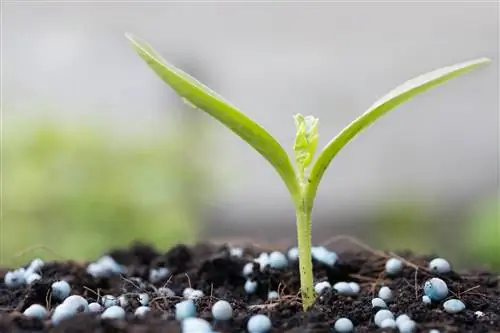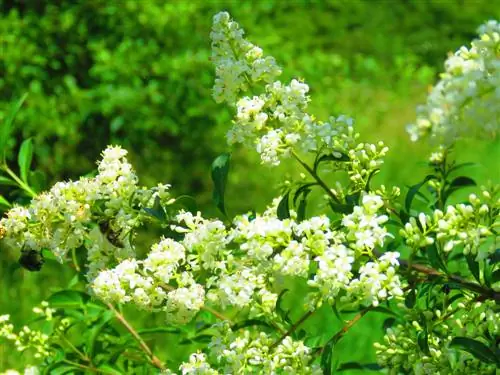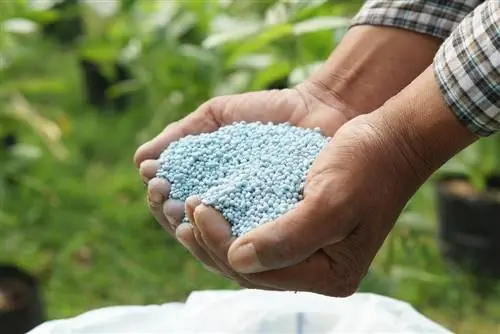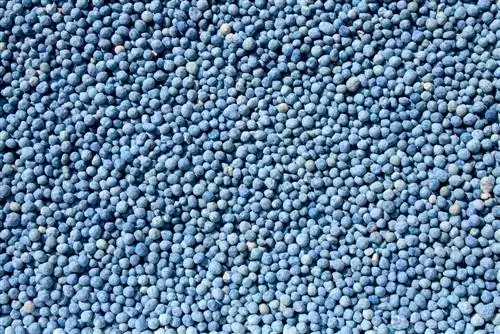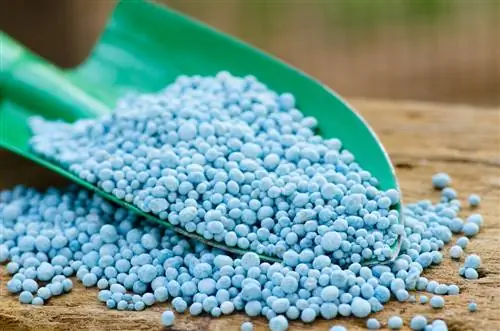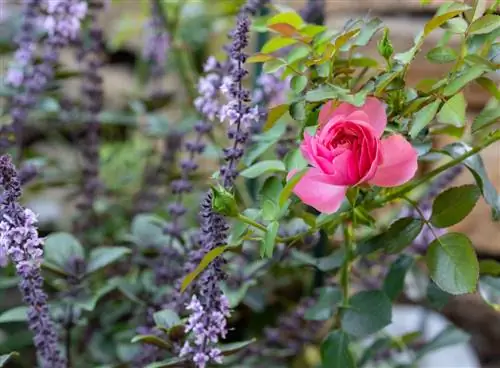- Author admin [email protected].
- Public 2023-12-16 16:46.
- Last modified 2025-01-23 11:22.
As a complex fertilizer, Blaukorn combines all the important nutrients in a ready-made mixture, making fertilizing easier for the gardener. Nevertheless, the artificial complete fertilizer is controversial and should only be used with caution. Below you will find out which plants blue grain fertilizer is suitable for.
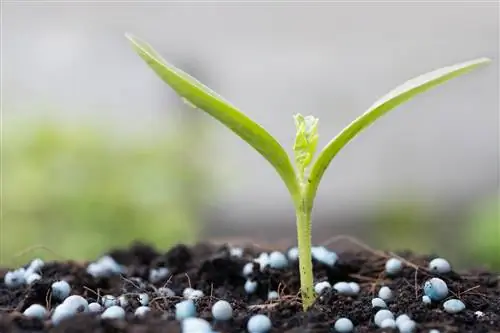
For which plants is blue grain fertilizer suitable?
Blue grain fertilizer is particularly recommended for plants that have ahigh nutrient requirementin a relatively short period of time. These are primarilyvegetable plants, which are intended to produce high yields, and alsoremontant plants, which bloom several times a year.
Which vegetable plants benefit from blue grain fertilizer?
Vegetable plants that sprout quickly after winter and are expected to produce high yields benefit particularly from blue grain fertilizer. These mainly include:
- Flower, rose and kale
- Broccoli
- Beetroot
- Radish
- Kohlrabi
- Head and lamb's lettuce
- Endives
- Spinach
- Cucumbers
- Carrots
- Onions
Blue grain fertilizer is also suitable for potatoes, peas, kidney beans, tomatoes and parsley.
For which replanting plants is blue grain recommended?
So-called remontant plants bloom at least twice a year. This means they have an increased nutrient requirement, which is why blue grain fertilizer can benefit them. These plants include:
- many types of roses
- Storksbills
- Dark Spurs
- Fine beam scanners
- woman's coat
- ornamental sage
- Trollflower
Is blue grain fertilizer suitable for evergreen plants?
Blue grain fertilizer is only suitable for evergreen plants if they are in great need of nutrients. Here are a few examples:
- Rhododendron
- Cherry Laurel
- currant
Can I fertilize potted plants with blue grain?
You can easily fertilize potted plants with blue grain if the plants have a high nutrient requirement, as is the case with angel trumpets, for example.
We advise you to dissolve the blue-colored granules in water beforehand and administer them that way.
Why do s alt-sensitive plants tolerate blue grain so well?
S alt-sensitive plants tolerate blue grain fertilization so well becausePotassium is contained as sulfateinstead of chloride. This means there is no risk of negative effects on the roots. Nevertheless, it is of course important to pay attention to the right amount and to avoid overdosing.
Is blue grain fertilizer useful for onion plants?
Blue grain fertilizer is very useful for bulbous plants such as tulips, crocuses, hyacinths and daffodils. These plants require a relatively large amount of nutrients in a short period of time in order to reach full bloom. The immediate effect of the artificial fertilizer is an advantage.
What are the disadvantages of blue grain fertilizer?
Blue grain fertilizer is achemically produced mineral fertilizer with a very high nutrient concentration. Too well-intentioned dosage can cause the plants to burn. It is therefore important to avoid over-fertilization with mineral fertilizers, even if there is an acute nutrient deficiency in a particular plant.
Tip
NovaTec from Compo as the only blue grain fertilizer suitable for gardening
There is currently only one blue grain fertilizer on the market whose nutrient composition is suitable for the garden. This is the NovaTec product from Compo.

